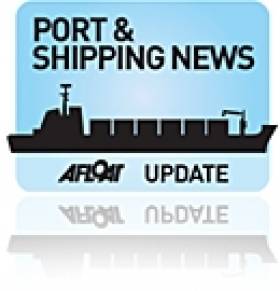Displaying items by tag: Port Regulation Deal
Transport Council Deals on Port Regulation
#PortRegulation – The Transport Council yesterday reached an agreement on the Port Regulation proposal.
The European Sea Ports Organisation (ESPO) recognises the enormous efforts made by the Italian Presidency to reach a deal on this very difficult proposal and believes the Council has made substantial progress on different important issues. These mainly relate to:
- The deletion of dredging from the list of port services. Dredging, be it capital or maintenance dredging, has to be considered as a part of the development and maintenance of the port infrastructure, not as a port service.
- The provisions related to the users committee and stakeholders consultation, by choosing for a more pragmatic, bottom-up approach.
- The handling of complaints. The original proposal for an independent supervisory body has been replaced by a more realistic provision setting out a procedure for the handling of complaints.
ESPO however believes that more needs to be done to create a ports policy that means a step forward for every single port in Europe. The European port authorities identify 3 main points of concern in that respect:
- The watering down of the principle of autonomy of the port to set its own charges, as foreseen in the Commission proposal of 23 May 2013. European port authorities need a policy that empowers them to successfully match the commercial and public interests and to meet the various challenges that both market forces and society imposes upon them. Notwithstanding their diversity, European port authorities believe that more autonomy will best help them in facing the challenges ahead. Port charges are an important tool of port management. By giving Member States the option to give ports more autonomy or not in that respect, the current Council text risks to further undermine the level playing field between European ports.
- Transparency in public funding and guidance for state aid for port infrastructure remain a priority and an essential condition for levelling the playing field between ports.
- A further clarification of some essential parts of the Council text is needed. The provision regarding infrastructure charging as well as the definitions need to be looked at further.
"The Council has set important steps towards a more realistic and workable regulation. But more work needs to be done. We still need to assess the outcome of the Council in detail. But one thing is clear already. We want the autonomy of ports strengthened in Europe, as it was initially proposed by the Commission and supported by the rapporteur and the main players in the European Parliament. We hope that the new Parliament continues to support us in that direction", says ESPO's Secretary General, Isabelle Ryckbost in reaction to the agreement.
Next steps: The general approach of the Council still needs to be formalised in a common position. But first the Parliament has to express its opinion in a first reading. The work in the Parliament is expected to start at the end of this year, beginning next year. MEP Knut Fleckenstein (Germany, S&D group) has been confirmed as rapporteur.






























































